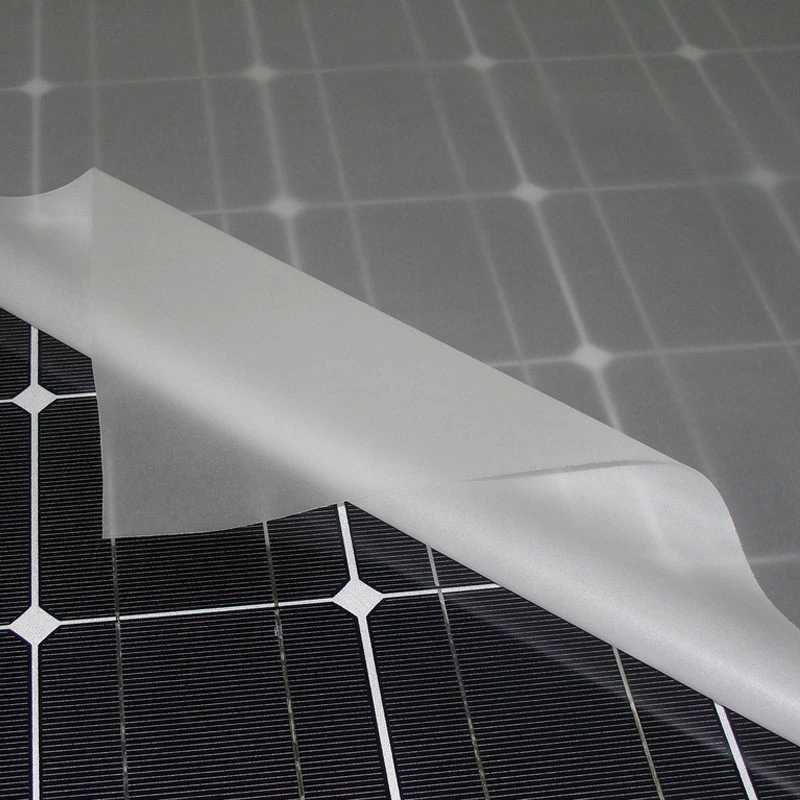Solar panels use Ethylene Vinyl Acetate (EVA) film for encapsulation, which serves several important purposes in the construction and protection of the panels.
- Encapsulation and Protection: EVA film is used as a protective layer to encapsulate the solar cells and other internal components of the solar panel. It acts as a barrier against environmental elements such as moisture, dust, dirt, and potential chemical contaminants. This encapsulation helps extend the lifespan of the solar panel by preventing damage to the sensitive components.
- Durability: EVA film enhances the durability of solar panels by providing a protective barrier that helps prevent physical damage to the solar cells and other components. It helps to withstand impacts, thermal expansion and contraction, and other environmental stresses that panels may experience over time.
- UV Protection: EVA film is designed to block a significant portion of the ultraviolet (UV) radiation from sunlight. UV radiation can degrade materials over time, causing discoloration, loss of efficiency, and other types of damage. EVA helps shield the solar cells from this potentially harmful radiation.
- Adhesion: EVA film has adhesive properties that allow it to securely bond the different layers of the solar panel together, including the glass or backsheet, the solar cells, and the rear protective layer. This adhesion helps maintain the structural integrity of the panel and prevents moisture infiltration.
- Optical Properties: EVA film is transparent to visible light, which allows sunlight to pass through and reach the solar cells. The optical properties of EVA are optimized to minimize reflection and maximize light absorption by the solar cells, contributing to the overall efficiency of the panel.
- Electrical Isolation: EVA film provides electrical isolation between the solar cells, preventing short circuits and other electrical issues that could arise from contact between conductive components.
- Manufacturability: EVA film can be easily laminated onto the solar cells using heat and pressure, making the manufacturing process of solar panels more streamlined and efficient.
- Flexibility: EVA film is somewhat flexible, which allows it to accommodate the expansion and contraction of materials due to temperature changes. This flexibility is particularly important in solar panels that may experience variations in temperature during operation.
Overall, EVA film plays a crucial role in protecting, enhancing the durability, and improving the performance of solar panels. It is an integral part of the encapsulation process that helps ensure the long-term functionality of solar panels in various environmental conditions.


